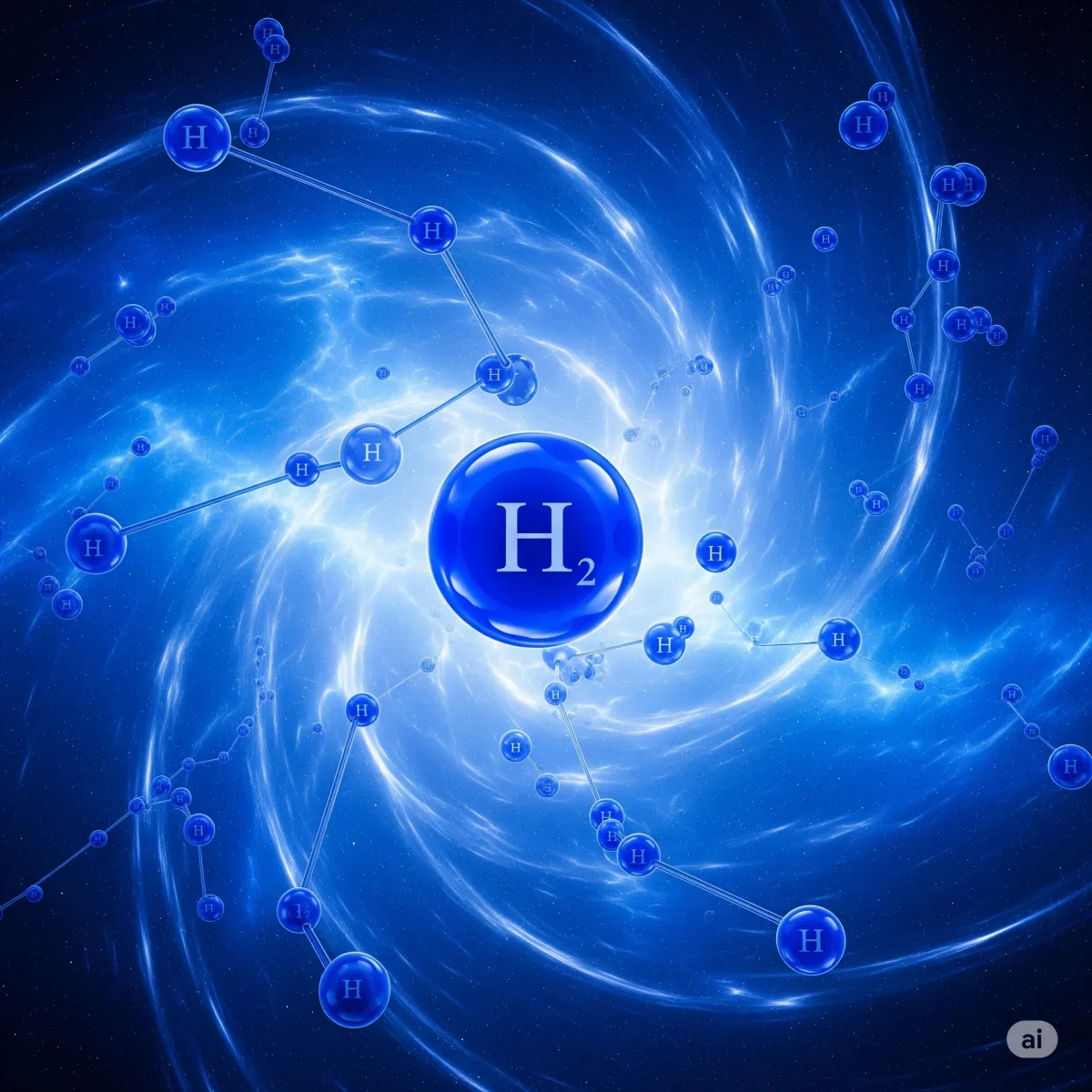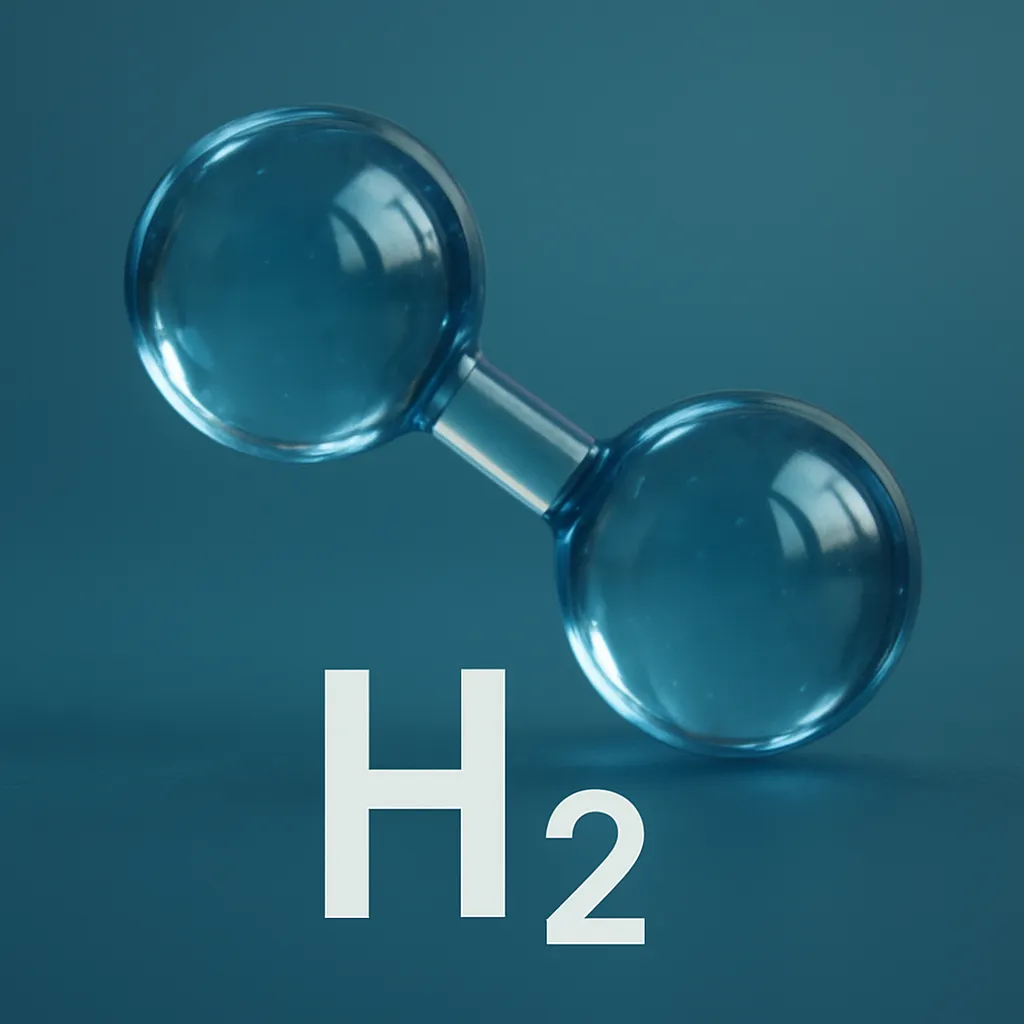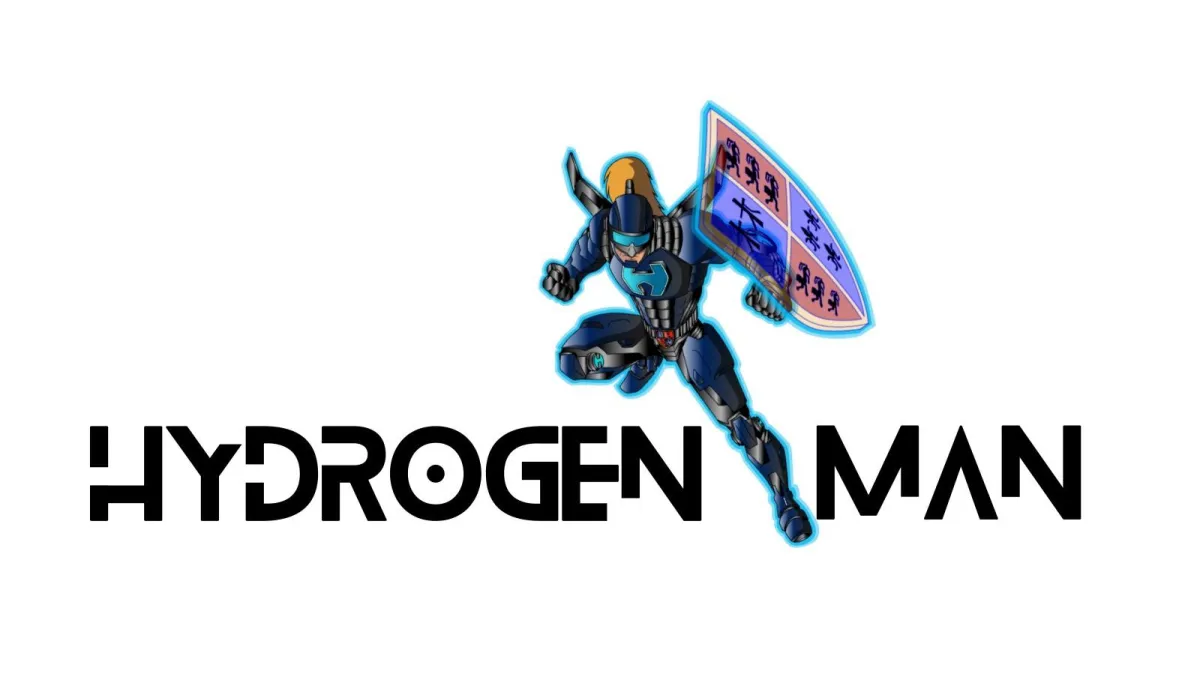Guangdong Study Reveals Hydrogen's Health Benefits

Hydrogen, though often compared to oxygen, is gaining attention for its potential health benefits. While oxygen is vital for energy production in the body, recent research has shown that hydrogen also plays an important role in regulating metabolism and may help in treating certain medical conditions.
Interest in hydrogen therapy began in the 1970s, with early studies suggesting it could help reduce cancer in laboratory animals. The field took a major step forward in 2007 when Japanese scientists identified hydrogen’s protective effects against brain injury, sparking global interest in what is now known as hydrogen medicine.
China has played a significant role in the advancement of this field. Researchers like Professor Sun Xuejun were early advocates, promoting hydrogen medicine through scientific studies and public education. Since then, numerous Chinese academics and medical professionals have explored hydrogen’s potential benefits for conditions like respiratory disease, heart problems, liver disorders, and the effects of aging.
During the COVID-19 outbreak, hydrogen-oxygen therapy was used to support patients with severe symptoms. The therapy showed positive outcomes and was officially recommended in national treatment guidelines. Further clinical research demonstrated its effectiveness in treating chronic respiratory conditions like COPD, which led to regulatory approval for hydrogen-oxygen medical devices.
Source: Mu Feng
Chairman of the Hydrogen Medicine Branch of Guangdong Geriatric Health Association, Standing Committee Member of the Hydrogen Biomedical Branch of China Geriatric Health Metical Research Association, and Oncology Department of Jinshazhou Hospital, Guangzhou University of Chinese Medicine
Therapeutic Potential of Molecular Hydrogen:
Insights from Clinical Studies
Hydrogen gas (H₂), known for its antioxidant properties, has been studied extensively across in vitro, animal, and human research for various therapeutic uses.Over 2,000 publications and numerous clinical trials highlight its potential as a novel treatment. This review examines 81 clinical trials and 64 human studies, which show promising results for conditions such as cardiovascular diseases, cancer, respiratory and neurological disorders, and infections.
results for conditions such as cardiovascular diseases, cancer, respiratory and neurological disorders, and infections. It also discusses current challenges in hydrogen administration—due to its flammability and low solubility—and explores future technological solutions. The review ultimately considers whether hydrogen gas could become a standard therapeutic agent in clinical practice, and what forms and indications it might take.
Source:
Hennie Marie Johnsen, Marianne Hiorth, Jo Klaveness Department of Pharmacy, University of Oslo, Sem Sælands Vei 3, 0371 Oslo, Norway; Nacamed AS, Oslo Science Park, Guastadalléen 21, 0349 Oslo, Norway.

Electrolyzed Hydrogen Water: A Review of Its Antioxidant and Anti-Inflammatory Effects in Living Systems
Alkaline-electrolyzed reduced water (ERW) has been credited with numerous health benefits, though many of these claims are tied to unscientific or misleading concepts. Proposed explanations for its effects have ranged from legitimate properties like its negative oxidation-reduction potential (ORP), alkaline pH, and dissolved hydrogen gas, to more questionable ideas such as altered water structures, micro-clusters, free electrons, and active hydrogen. This pseudoscientific marketing has hindered ERW’s acceptance in mainstream science. However, extensive in vitro and in vivo research has gradually debunked these unverified theories, ultimately confirming that molecular hydrogen (H₂) is the true source of ERW’s health benefits and its negative ORP. This article outlines the historical development of ERW research and presents evidence showing that H₂ alone accounts for its biological effects—without needing to rely on speculative or metaphysical explanations. It also stresses the importance of measuring the actual hydrogen concentration in ERW to ensure it aligns with doses proven effective in clinical studies.
Alkaline-electrolyzed reduced water (ERW) has been linked to various health benefits, though many early claims were based on unproven concepts like micro-clusters and altered water structures. These pseudoscientific ideas led to skepticism in mainstream science. However, extensive in vitro and in vivo research has confirmed that molecular hydrogen (H₂) is the sole active component responsible for ERW’s therapeutic effects and negative ORP. This review summarizes the research progression and emphasizes that ERW’s benefits can be explained by known biological actions of H₂, without relying on implausible theories. Accurate measurement of hydrogen concentration is essential for aligning ERW with effective clinical outcomes.
Source:
Di Hu Shigeru Kabayama, Yasuyoshi Watanabe s , Yilong Cui Laboratory for Biofunction Dynamics Imaging, RIKEN Center for Biosystems Dynamics Research, Kobe 650-0047, Japan; Department of Medical Technology and Sciences, Faculty of Health of Health Sciences, Japan; 'Nihon Trim, Co., Ltd., Osaka 530-0001, Japanl; Laboratory for Pathophysiological as, Kyoto Tachibana University, Kyoto 607-8175, lytics Research, Kobe 650-0047, Japan: "Department of Essential Healthcare Science, Graduate School of Science, Technology and Innovation, Kobe University, Kobe 650-0047, Japan; "Laboratory for Brain-Gut Homeostasis, Hyogo Medical University, Nishinomiya 663-8501, Hyogo, Japan.
Hydrogen Water in Health and Medicine:
Promise or Pseudoscience?
Hydrogen-rich water (HRW) has recently attracted attention as a promising innovation in health and wellness. It is thought to possess antioxidant properties capable of neutralizing free radicals in the body. Research has also suggested its effectiveness in reducing oxidative stress through anti-inflammatory and anti-apoptotic mechanisms. This systematic review aims to assess the potential health benefits of HRW. The review protocol was registered on PROSPERO. Following an initial screening process, two blinded reviewers assessed the literature, resulting in 25 studies being included in the final analysis. HRW's effects on exercise performance, endurance, liver health, cardiovascular conditions, mental well-being, COVID-19 recovery, oxidative stress, and aging are being increasingly investigated. While early clinical findings are promising, further research with larger cohorts and more rigorous designs is necessary. A clearer understanding of the biological mechanisms involved is also needed. Continued investigation will help determine the future therapeutic value of HRW.
Source:
Gegandeep Dhillon', Venkata Buddhavarapu, Harpreet Grewal, Pranjal Sharma', Ram Kishun Verma, Ripudaman Munjal, Ramprakash Devadoss, Rahul Kashyap Department of Internal Medicine, University of Maryland Baltimore Washington Medical Center, Glen Burnie, MD 21061, USA; "Banner Medical Group, Banner Health, Phoenix, AZ 85206, USA; Department of Radiology, Florida State University School of Medicine, Pensacola, FL 32514, USA; Department of Internal Medicine, Northeast Ohio Medical University, Rootstown, OH 44272, USA; "Department of Sleep Medicine, Parkview Health System, Fort Wayne, IN 46845, USA; "Department of Nephrology, Touro University College of Osteopathic Medicine, Vallejo, CA 94592, USA; Interventional Cardiology, Carle Methodist Medical Center, Peoria, IL 61636, USA; "Department of Research, WellSpan Health, York, PA 17403, USA
Therapeutic Benefits of Hydrogen/Oxygen Inhalation for Non-Alcoholic Fatty Liver Disease: Results from a Randomized, Placebo-Controlled Trial
Non-alcoholic fatty liver disease (NAFLD) is a widespread chronic liver condition without approved treatments. This study tested hydrogen/oxygen inhalation in NAFLD patients and found it improved liver fat, lipid profiles, and enzyme levels, especially in moderate to severe cases. Animal and cell experiments showed that hydrogen reduces inflammation and liver damage by promoting autophagy, a cellular cleanup process. These findings suggest hydrogen/oxygen therapy may protect against NAFLD by activating liver cell autophagy.
Source:
Geru Tao, Guangjie Zhang, Wei Chen, Chao Yang, Yazhuo Xue, Guohua Song, Shucun Qin The Second Affiliated Hospital of Shandong First Medical University, Tai'an, China, "Taishan Institute for Hydrogen Biomedical Red 123 Shandong First Medical Universitariston Academy of Medical Sciences, Tai'an, China; College of Basic Medical Sciences, Sig First Medical University & Shandong Academy of Medical Sciences, Jinan, China; "Department of Medical Technology and Nursing Vocational and Technical College, Jinan, China; College of Nursing, Shandong First Medical University & Shandong Academy of Sciences, Tai'an, China
Hydrogen-Rich Water Supports Heart Health by Reducing LDL Cholesterol and Boosting HDL Function in Metabolic Syndrome Risk Patients
Drinking hydrogen-rich water for 10 weeks in patients with potential metabolic syndrome significantly lowered total cholesterol and LDL cholesterol levels. It also reduced harmful apolipoproteins (apoB100 and apoE) in the blood. Additionally, hydrogen-rich water improved HDL (good cholesterol) functions by protecting against LDL oxidation, reducing inflammation, promoting cholesterol removal from foam cells, and protecting blood vessel cells from damage. It enhanced antioxidant enzyme activity and decreased oxidative stress markers. Overall, hydrogen-rich water may help prevent metabolic syndrome by improving lipid profiles, enhancing cholesterol function, and reducing oxidative damage.
Source:
Guohua Song, Min Li, Hui Sang, Liying Zhang, Xiuhong Li, Shutong Yao, Yang Yu, Chuanlong Zong, Yazhuo Xue, Shucun Qin Key Laboratory of Atherosclerosis in Universities of Shandong, Shandong, China
Molecular Hydrogen Improves Body Composition, Metabolic Health, and Mitochondrial Function in Overweight Middle-Aged Women
In a double-blind, placebo-controlled pilot study on middle-aged overweight women, oral hydrogen-generating minerals significantly reduced body fat percentage and arm fat compared to placebo. Hydrogen treatment also lowered serum triglycerides and improved insulin sensitivity, suggesting it may be an effective, safe approach to improving body composition and metabolic health in obesity.
Source:
D Korovljev, T Trivic, P Drid', SM Ostojic Faculty of Sport and Physical Education, University of Novi Sad, Novi Sad, Serbia: "Faculty of Sport and Physical Education, University of Novi Sad, Novi Sad, Serbia,
Hydrogen-rich water may help improve lipid and glucose metabolism in people with type 2 diabetes or glucose intolerance.
Research from a randomized, placebo-controlled study offers promising insights into the effects of hydrogen-rich water on metabolic health. The study, involving individuals with type 2 diabetes or impaired glucose tolerance, demonstrated that daily intake of hydrogen-rich water over eight weeks led to notable reductions in damaging forms of cholesterol (modified LDL and small dense LDL) and a decrease in oxidative stress markers. Furthermore, it appeared to help normalize glucose tolerance in a subset of participants. These findings suggest that incorporating hydrogen-rich water into one's diet could be a valuable strategy for preventing type 2 diabetes and addressing insulin resistance.
Source:
Szuo kanyama Go Hasegawa, Mai Asano, Hiroko Hosoda, Michiaki Fukui, Naoto Nakamura, Jo Kitawaki, Saeko Imai, Koji Nakane, Malmo Olta. Tetsuo Adachi, Hiroshi Obayashi, Toshikazu Yoshikanea Kahama China, Koja 615-0035. Japan


FOLLOW US
COMPANY
CUSTOMER CARE
LEGAL
Copyright 2025. Lancaster Hotel Manila, Mandaluyong City . All Rights Reserved.